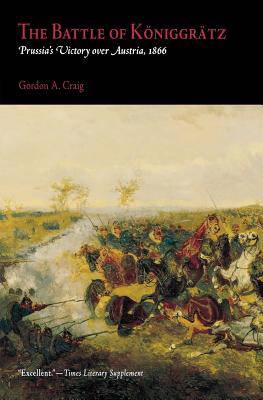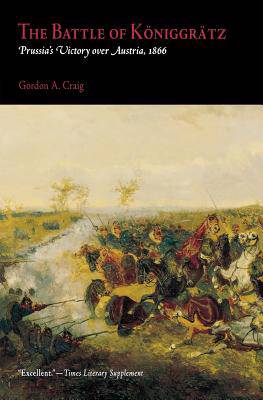
- Retrait gratuit dans votre magasin Club
- 7.000.000 titres dans notre catalogue
- Payer en toute sécurité
- Toujours un magasin près de chez vous
- Retrait gratuit dans votre magasin Club
- 7.000.0000 titres dans notre catalogue
- Payer en toute sécurité
- Toujours un magasin près de chez vous
43,45 €
+ 86 points
Description
Königgrätz, a city overlooking the river Elbe, was a western strongpoint of the Austrian Empire. On the morning of July 3, 1866, Prussia attacked the city against high odds and defeated the Austrian army in a single day, despite the Austrian advantage in heavy artillery and command of the high ground. The fall of Königgrätz transferred power over the German states from Austria to Prussia, marking the beginning of the German nation, a political consequence considered to be among the most important of any conflict in modern history.
The battle for the city of Königgrätz--now called Hradec Králové, located in the Czech Republic--was the largest of its time, with nearly half a million troops involved. It was also the first battle where the outcome was directly determined by the availability of new technologies, including the railroad, telegraph, cast steel rifled cannon, and breech-loading rifle. It also marked a lesson in the fallacy of dependence on technology at the expense of sound strategy. In this full account, distinguished historian Gordon A. Craig discusses the state of political affairs surrounding the battle, the personalities involved, the weaponry, and the tactics in order to recreate the battlefield in all its complexity.Spécifications
Parties prenantes
- Auteur(s) :
- Editeur:
Contenu
- Nombre de pages :
- 224
- Langue:
- Anglais
Caractéristiques
- EAN:
- 9780812218442
- Date de parution :
- 07-03-03
- Format:
- Livre broché
- Format numérique:
- Trade paperback (VS)
- Dimensions :
- 132 mm x 201 mm
- Poids :
- 249 g

Les avis
Nous publions uniquement les avis qui respectent les conditions requises. Consultez nos conditions pour les avis.






